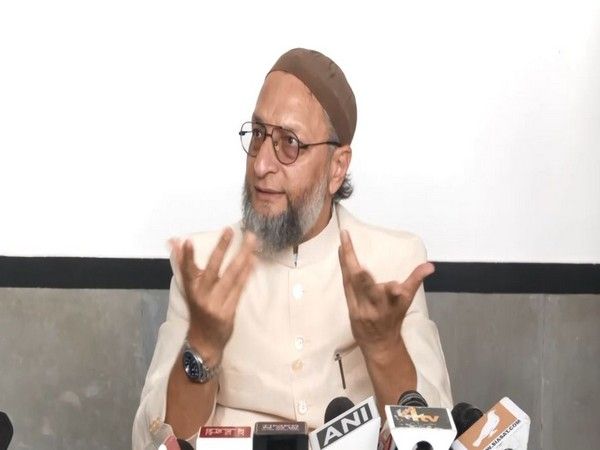
On Tuesday, AIMIM Chief Asaduddin Owaisi denounced the UP Government’s efforts to discredit madrasas and applauded the Supreme Court’s decision to protect the Uttar Pradesh Madarsa Act.
Owaisi also emphasized the outstanding wages of Rs 1,628.46 crore for core subject teachers.
“The Supreme Court ruled today that the Madrasa Act of Uttar Pradesh is constitutional,” said AIMIM Chief Asaduddin Owaisi on. Madrasas have been the target of persistent attempts by the Yogi administration to discredit them and declare them unlawful. Maybe because teachers in 21,000 madrasas have not received their wages from the UP government. Instead of teaching religious instruction, these professors taught science, math, and other subjects. Up to 2022-2023, salaries of Rs 1,628.46 crore were not paid. The unpaid balance is anticipated to be settled as quickly as feasible.
Mayawati, the chief of the Bahujan Samaj Party (BSP), has praised the recent decisions of the Supreme Court that support the legitimacy of the UP Madrasa Education Board Act of 2004.
Mayawati commended the Supreme Court in her tweet for deeming the UP Madrasa Education Board Act-2004 to be “legal and constitutional.”
“It is anticipated that this decision will settle disagreements and eliminate doubts regarding madrasa education in Uttar Pradesh,” she said.
This choice must be implemented correctly. The Supreme Court’s ruling has given rise to the possibility of stability in the acknowledgement and efficient operation of madrasas in Uttar Pradesh. She said, “The court stated that the provisions of the Madrasa Act align with constitutional values and protect the educational rights of religious minorities.”
Earlier in the day, the Supreme Court overturned the Allahabad High Court’s March 22 decision that had declared the Uttar Pradesh Board of Madrasa Education Act 2004 unconstitutional. The Act is unconstitutional because it governs higher education with respect to “Fazil” and “Kamil,” which is in contradiction with the UGC Act, according to a bench headed by Chief Justice of India DY Chandrachud and Justices JB Pardiwala and Manoj Misra.
The court explained that the Madrasa Act governs educational standards in Uttar Pradesh, adding that the state has the authority to control educational standards and that minorities do not have an absolute right to run educational institutions. A fundamental component of the Constitution’s fundamental framework, secularism, was violated by the Act, which the Allahabad High Court had already declared unconstitutional.
The Supreme Court pointed out that while a statute may be overturned for infringing legislative authority or fundamental rights, it cannot be declared unconstitutional based just on structural flaws. Although the Court’s decision does not affect madrasas’ day-to-day operations, it did highlight the need for the Act’s legal framework to standardize educational levels at these institutions. The ruling seeks to guarantee that students may graduate and find respectable work while also defending the rights of minorities in Uttar Pradesh.
India is a “melting pot of cultures, civilizations, and religions,” the Supreme Court said during the proceedings, emphasizing the importance of maintaining this variety. In opposition to the requirements of the Right to Education Act of 2009, the National Commission for Protection of Child Rights (NCPCR) said that the education offered in madrasas was incomplete. The Uttar Pradesh administration agreed with the verdict and backed the law.
Following appeals against the High Court’s ruling that the UP Board of Madrasa Education Act of 2004 was unconstitutional and a violation of basic rights and secularism, the Supreme Court rendered its opinion. A number of groups, including the All India Teachers Association Madaris Arabiya (New Delhi) and the Managers Association Madaris Arabiya (UP), submitted the appeals. Students may study Islamic studies in addition to other subjects in madrasas. In the past, the Allahabad High Court had directed the state to make sure that students at madrasas in Uttar Pradesh may transfer to other educational institutions.